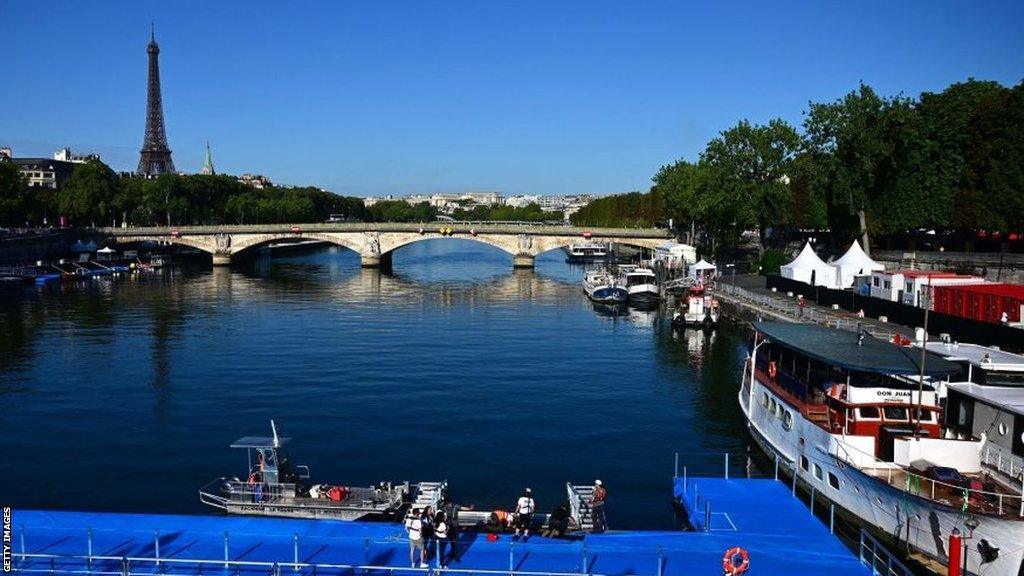Paris 2024: Triathlon swimming could be cancelled because of poor water quality
- Published

Swimming is set to return to the Seine at Paris 2024 after a 100-year-old ban
The swimming leg of the triathlon at this summer's Olympics could be cancelled if heavy rain affects water quality in the River Seine, says Paris 2024 president Tony Estanguet.
Recent testing by charity Surfrider Foundation Europe revealed "alarming", external levels of E. coli in the river.
Estanguet said contingency plans are in place, including delaying the event until later in the Games.
"We knew it will be a big challenge," he said.
Speaking at Sport Accord in Birmingham, as first reported by the Guardian,, external Estanguet said: "We can postpone for rainy conditions. Because it's programmed at the beginning of the Games, we can wait for better conditions. So we are confident that it will be possible to use the Seine.
"And there is a final decision where we could not swim - it's part of the rules of the International Federation. It's what we want to avoid, of course."
The Olympics start on 26 July, with the men's and women's triathlon scheduled for 30 and 31 July respectively and the mixed event on 5 August.
The Seine is also set to host marathon swimming at the Olympics and the Para-triathlon event at the Paralympics, which start on 28 August.
Surfrider Foundation Europe said 14 water samples taken from near the Alexandre III Bridge, the starting point for the triathlon, marathon swimming and Para-triathlon events, failed to meet safety standards.
Heavy rain in the days leading up to events could raise levels of bacteria in the water.
The Open Water Swimming World Cup and the swimming leg of the World Triathlon Para Cup - both test events for the 2024 Games - were called off in August because of water quality issues, although the World Triathlon test event went ahead later that month.
Organisers say about 1.4bn euro (£1.2bn) is being spent on a regeneration project to make the Seine safe to swim in, including a rainwater storage basin to try and reduce the risks of pollution.
The water will be tested every day during the Olympics to ensure it is safe.
Three open-air swimming areas accessible from the quayside are set to open by 2025, 102 years after the French government banned swimming in the Seine because of health concerns.
"There is a big programme of investment," said Estanguet. "And when we talk about legacy, this project is fantastic."